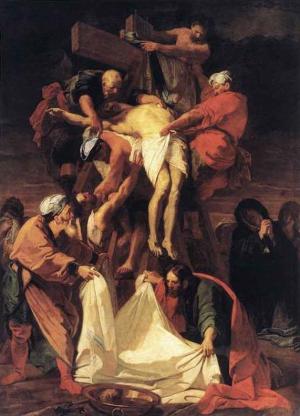The Man of Flesh and Blood, In the Face of His Constituents, and the Awakening of the Lieutenant-Governor
Nonfiction, Religion & Spirituality, New Age, History, Fiction & Literature| Author: | Susan Glaspell | ISBN: | 9781465627209 |
| Publisher: | Library of Alexandria | Publication: | March 8, 2015 |
| Imprint: | Language: | English |
| Author: | Susan Glaspell |
| ISBN: | 9781465627209 |
| Publisher: | Library of Alexandria |
| Publication: | March 8, 2015 |
| Imprint: | |
| Language: | English |
THE elements without were not in harmony with the spirit which it was desired should be engendered within. By music, by gay decorations, by speeches from prominent men, the board in charge of the boys’ reformatory was striving to throw about this dedication of the new building an atmosphere of cheerfulness and good-will — an atmosphere vibrant with the kindness and generosity which emanated from the State, and the thankfulness, appreciation, and loyalty which it was felt should emanate from the boys. Outside the world was sobbing. Some young trees which had been planted along the driveway of the reformatory grounds, and which it was desired should grow up in the way they should go, were rocking back and forth in passionate insurrection. Fallen leaves were being spit viciously through the air. It was a sullen-looking landscape which Philip Grayson, he who was to be the last speaker of the afternoon, saw stretching itself down the hill, across the little valley, and up another little hill. In his ears was the death wail of the summer. It seemed the spirit of the out-of-doors was sending itself up in mournful, hopeless cries. The speaker who had been delivering himself of pedantic encouragement about the open arms with which the world stood ready to receive the most degraded one, would that degraded one but come to the world in proper spirit, sat down amid perfunctory applause led by the officers and attendants of the institution, and the boys rose to sing. The brightening of their faces told that their work as performers was more to their liking than their position as auditors. They threw back their heads, and waited with a kind of well-disciplined eagerness for the signal to begin. Then, with the strength and native music there are in some three hundred boys’ throats, there rolled out the words of the song of the State. There were lips which opened only because they must, but as a whole they sang with the same heartiness, the same joy in singing, that he had heard a crowd of public-school boys put into the song only the week before. When the last word had died away, there was over the whole crowd of them a look of well-defined regret, and it seemed to Philip Grayson that the sigh of the world without was giving voice to the sigh of the world within as the well-behaved crowd of boys sat down to resume their duties as auditors. And then one of the most important of the professors from the State University was telling them about the kindness of the State: the State had provided for them this beautiful home; it gave them comfortable, neat clothing and well-tasting, nutritious food; it provided that fine gymnasium in which to train their bodies; it provided books and teachers to train their minds; it provided those fitted to train their souls, to work against the unfortunate tendencies — the professor stumbled a little there — which had led to their coming. The State gave liberally, gladly, and in return it asked but one thing: that they come out into the world and make useful, upright citizens, citizens of which any State might be proud. Was that asking too much? the professor from the State University was saying.
THE elements without were not in harmony with the spirit which it was desired should be engendered within. By music, by gay decorations, by speeches from prominent men, the board in charge of the boys’ reformatory was striving to throw about this dedication of the new building an atmosphere of cheerfulness and good-will — an atmosphere vibrant with the kindness and generosity which emanated from the State, and the thankfulness, appreciation, and loyalty which it was felt should emanate from the boys. Outside the world was sobbing. Some young trees which had been planted along the driveway of the reformatory grounds, and which it was desired should grow up in the way they should go, were rocking back and forth in passionate insurrection. Fallen leaves were being spit viciously through the air. It was a sullen-looking landscape which Philip Grayson, he who was to be the last speaker of the afternoon, saw stretching itself down the hill, across the little valley, and up another little hill. In his ears was the death wail of the summer. It seemed the spirit of the out-of-doors was sending itself up in mournful, hopeless cries. The speaker who had been delivering himself of pedantic encouragement about the open arms with which the world stood ready to receive the most degraded one, would that degraded one but come to the world in proper spirit, sat down amid perfunctory applause led by the officers and attendants of the institution, and the boys rose to sing. The brightening of their faces told that their work as performers was more to their liking than their position as auditors. They threw back their heads, and waited with a kind of well-disciplined eagerness for the signal to begin. Then, with the strength and native music there are in some three hundred boys’ throats, there rolled out the words of the song of the State. There were lips which opened only because they must, but as a whole they sang with the same heartiness, the same joy in singing, that he had heard a crowd of public-school boys put into the song only the week before. When the last word had died away, there was over the whole crowd of them a look of well-defined regret, and it seemed to Philip Grayson that the sigh of the world without was giving voice to the sigh of the world within as the well-behaved crowd of boys sat down to resume their duties as auditors. And then one of the most important of the professors from the State University was telling them about the kindness of the State: the State had provided for them this beautiful home; it gave them comfortable, neat clothing and well-tasting, nutritious food; it provided that fine gymnasium in which to train their bodies; it provided books and teachers to train their minds; it provided those fitted to train their souls, to work against the unfortunate tendencies — the professor stumbled a little there — which had led to their coming. The State gave liberally, gladly, and in return it asked but one thing: that they come out into the world and make useful, upright citizens, citizens of which any State might be proud. Was that asking too much? the professor from the State University was saying.















